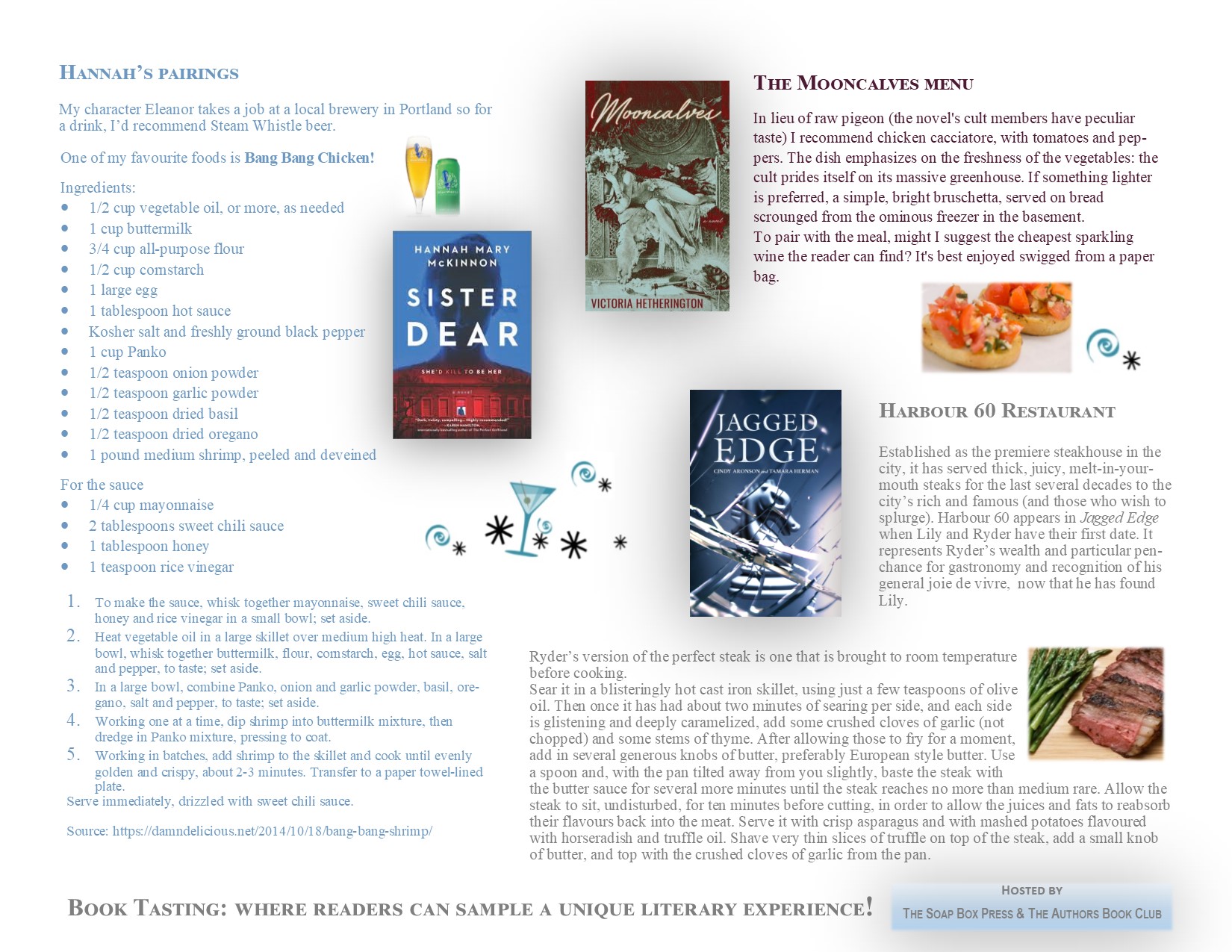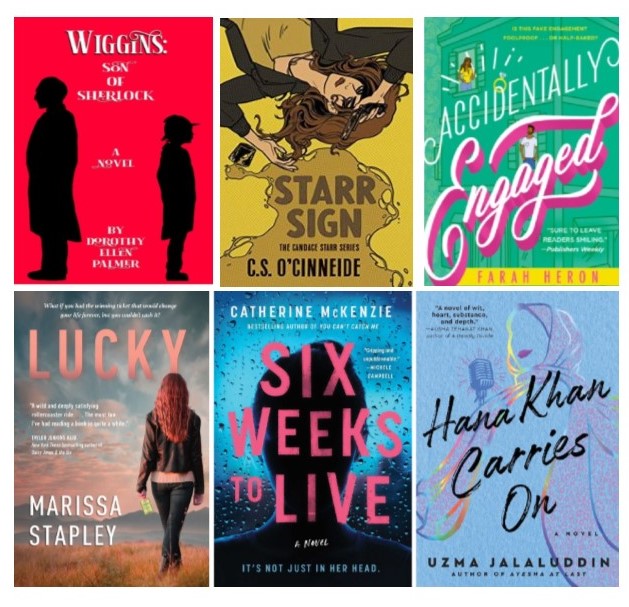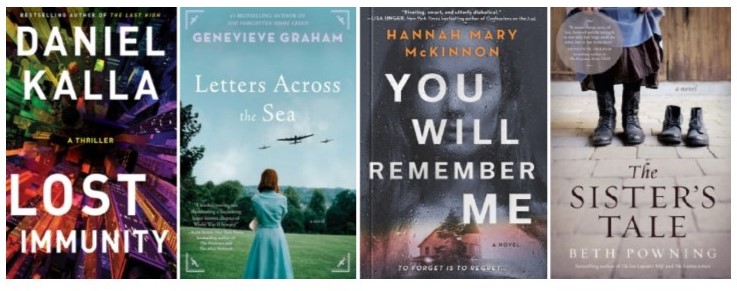Guest Post by Syeda Shanzay Kamran
It’s been a year since David took a break from The Authors Book Club, an initiative he co-created in January 2019. In this interview, we catch up with him to see how he’s been doing.

Shanzay: Undercard, released in 2019, was on the Crime Reads 2020 must-read list of 8 Debut Novels, was a finalist in the 2020 Evergreen Award, and one of 49th Shelf’s top fiction titles of 2019. How has the journey into the writer’s world been? Were you surprised by anything?
David: Coaching tennis has basically been my day job since I finished university, and transitioning from that to focusing on writing my book was a big change. After the release of Undercard, I was suddenly doing interviews and things like that. It was a lot of fun, but at times overwhelming. I did put quite a lot of pressure on myself. Maybe this was because I was a first-time author, but I felt very grateful to my publisher for giving me that opportunity, and I felt this great responsibility to sell a lot of books. I think perhaps I shouldn’t have put so much pressure on myself in that regard and instead, just experienced it.
Another thing is, when you’re unpublished, your first book is your door to entering the industry. It is kind of a weird mix of you getting this incredible opportunity; you want to capitalize on it to make sure that you have a long-lasting career. But at the same time, it’s a big thing, and it is something that you should just experience, so I think balancing that is a skill. This wasn’t something I had an understanding of going in.
Shanzay: In an interview with Fiona Ross, you shared that we might be seeing Undercard on the big screen? Can you share any updates?
David: For sure! The big difference between that and writing is that with a book you have an agent either accept your work or not. Whereas in screen work, it seems as if there are countless little steps along the way. The project has moved quite a long way. They got a screenwriter and they are developing it. I believe it’s close to being a series. Hopefully, we should know by next year. It’s fascinating because there are lots of people and a lot of production companies attached to it. It’s really exciting!
Shanzay: You mentioned in an interview with Tom Sumner that you’re working on a new book about the tennis world and crime fiction.
David: It’s grown quite large. I’m not sure if we will end up doing a large book, or maybe it will be divided into more than one book. It’s funny because when I started, I thought of it as humour, drama, murder mystery revolved around the tennis club world. Undercard was intense, so I thought something comedic would be nice. One of the characters, Antoine, who is a pivotal character, is intense. It was quite emotionally taxing to write it. By the end, I was like, this is a lot more than I thought. It’s not the same as Undercard, though it is still more relationship-based. It’s been a lot of work. By this summer I hope to have a nice solid manuscript.
Shanzay: You shared that you did a lot of research for your first book, Undercard, on boxing and how that world works. Do you enjoy the process? How do you weave your research into the storytelling? Is that easy or challenging?”
David: Weaving research into your story, I would say, is almost like a puzzle. It is sort of this complex puzzle of information about things you find interesting, that are important, that are maybe not being discussed enough. Or there may be interesting things that are just useful for people to learn about and are potentially valuable, especially an intriguing discussion that comes from academics or journalists. I find weaving that in extremely challenging, but in a fun way. I find that it is one of my favourite parts of writing.
Not only that, but I find that it is one of my strengths to take my research and weave it organically into my work, in a way that flows. If someone is reading my book purely for entertainment, it should be captivating and should have a flow to it.
Shanzay: Out of curiosity I wanted to ask, how do you take a fact and turn it into something that has depth enough for both your characters and your reader to feel?
David: One thing that works for me is when I am writing, I don’t like to have my research notes with me. I try to recall my research and just go with the flow. Then, when I’m in the editing process, I return to my notes and see where I can add my research. I sometimes feel like, in books and/or fiction, you come across a scene, and you can just tell that this person liked this part of their research and put that in there.
I would say in terms of details, I find that the least interesting part. That’s something where you can refer to your research, especially in the editing process. Throw a detail in there just to give the reader a sense of the world without going overboard.
Shanzay: How did 2021 impact your writing? Do you plan on including these years in your books in the future?
David: Recently I was watching Salman Rushdie, and he was saying that young writers shouldn’t feel like they have to write about the pandemic. But for me generally, my ideas take a long time, so by the time I’m writing something, it has already happened a long time ago. The current book is set in 2018/2019 because I started writing it before the pandemic started, so it made no sense to include it. But I think at some point I might be writing about this period.
In terms of how it affected me, I think 2020 wasn’t as productive as I would have liked it to be. There was so much going on. I had a couple of people close to me who were having a rough time, and I was trying to be there for them. It slowed me down and my writing. But otherwise the year has been quite productive.
Shanzay: Are you reading anything now? What books would you say are “must-reads for 2021”?
David: I’m re-reading Watership Down by Richard Adams. I really love it. I started reading Alice in Wonderland just because I was watching Westworld, the TV series, and it is a recurring theme in it. A book for writing that I always go back to is Hilary Mantel’s Wolf Hall. I love that book. I just love her style. I’ve read the whole series. My favourite is probably the middle one, Bring Up The Bodies. When I’m stuck writing, I go back to the opening chapter and think that this is how I want to write. I’m also reading Dubliners by James Joyce, which is a book of short stories. When I’m writing, I like to read people whose styles match mine.
This interview has been edited for length and clarity.
Syeda Shanzay Kamran is a co-op student with The Soap Box Press. Her vision is to bring comfort and happiness through her work.




















